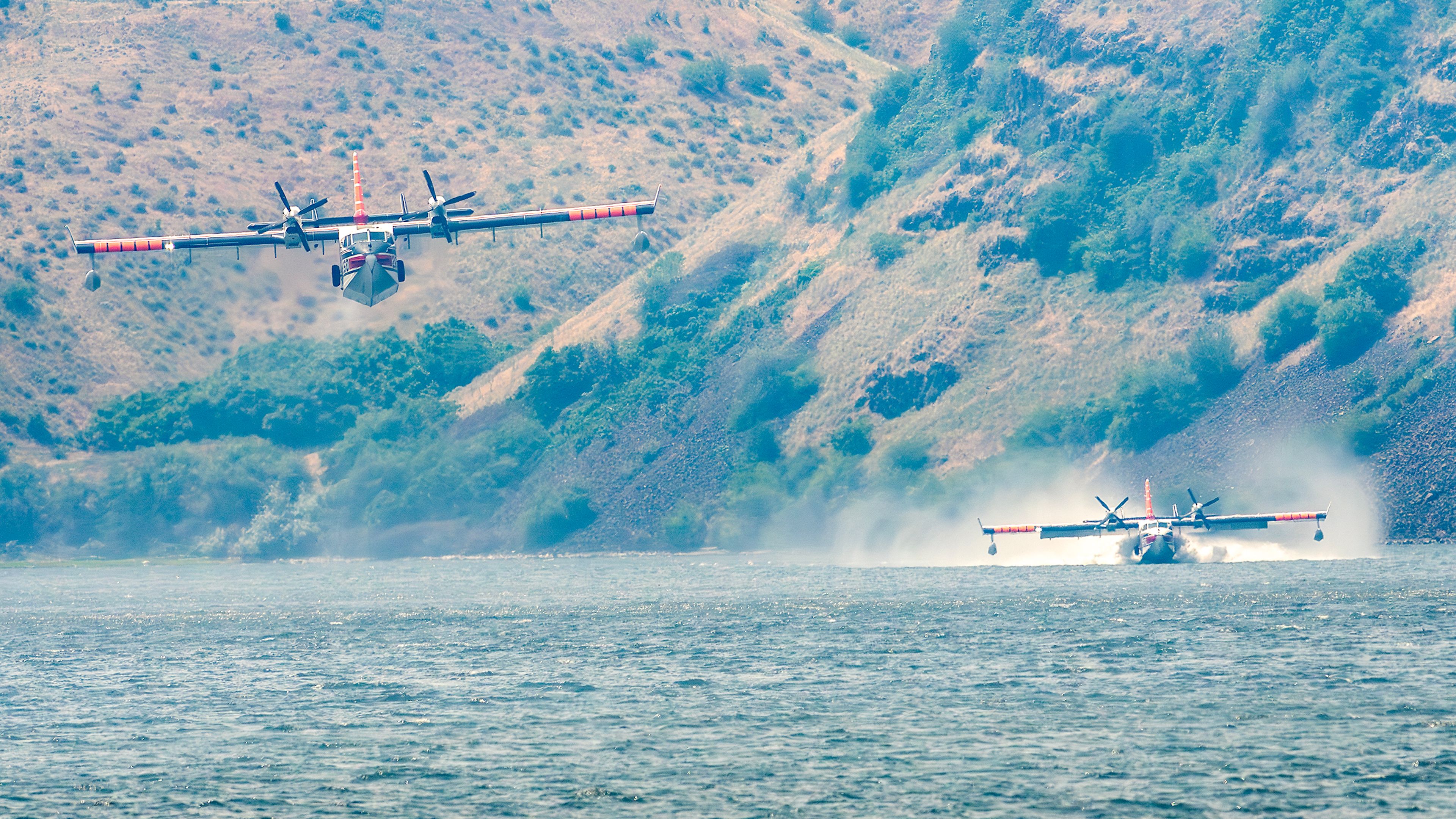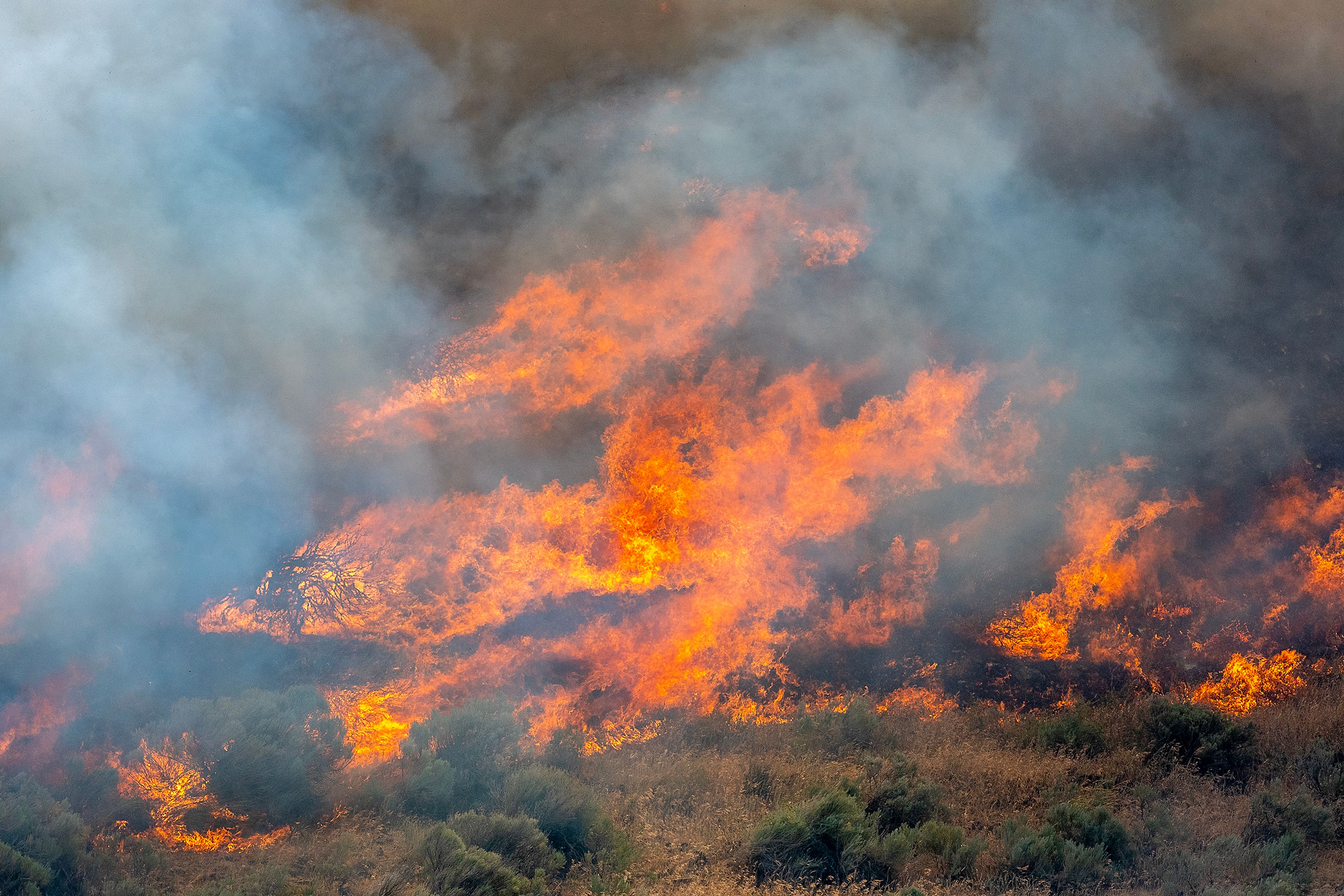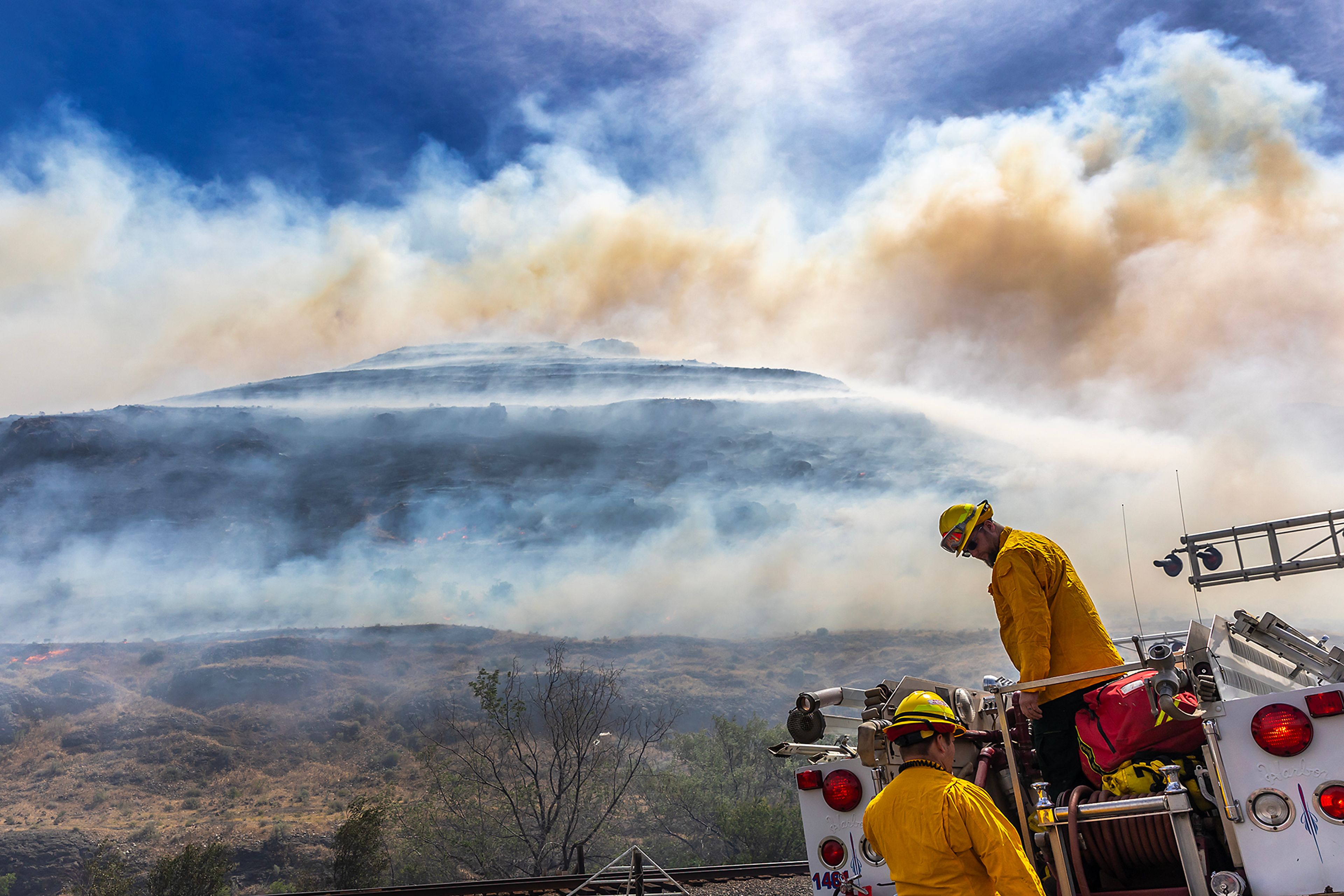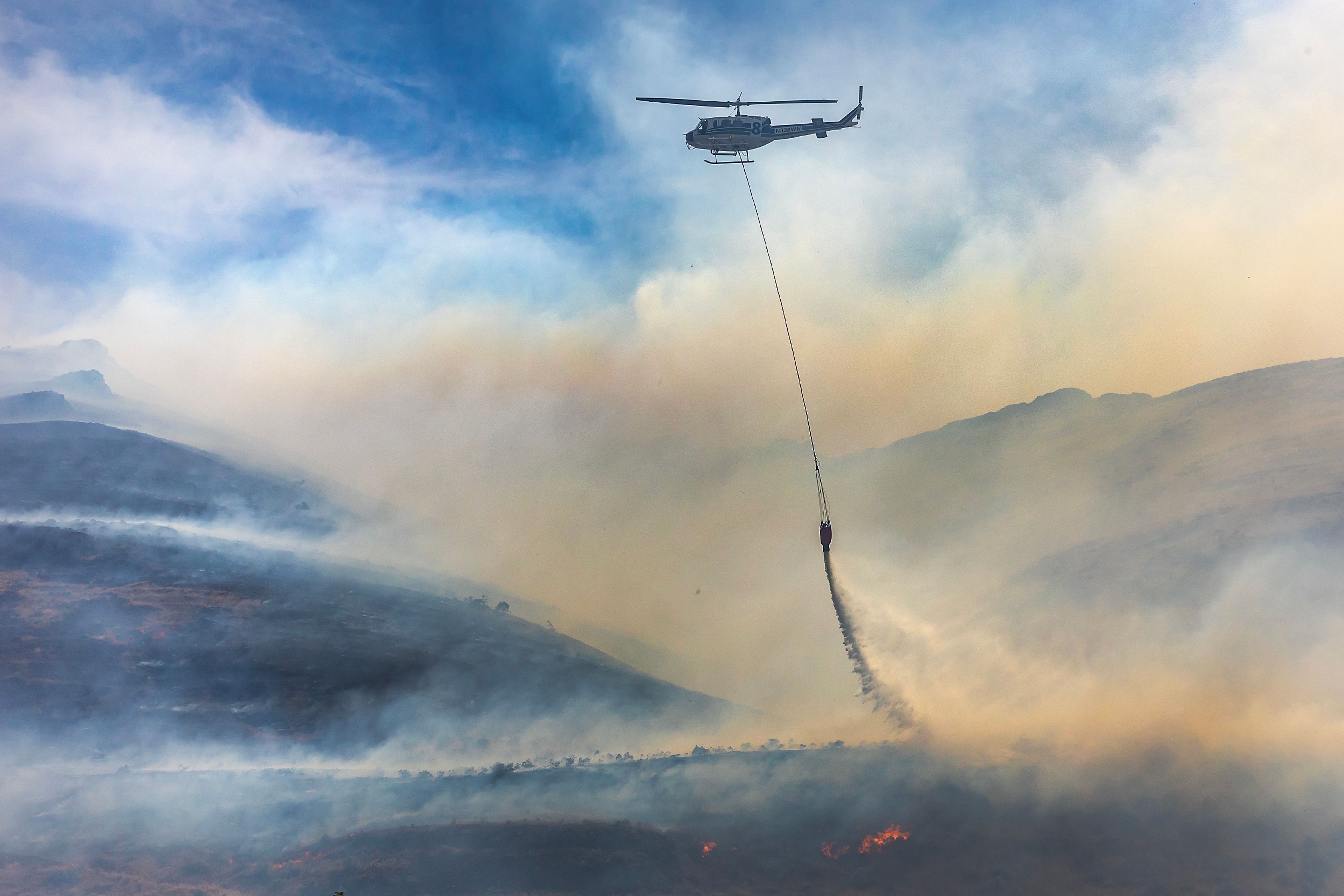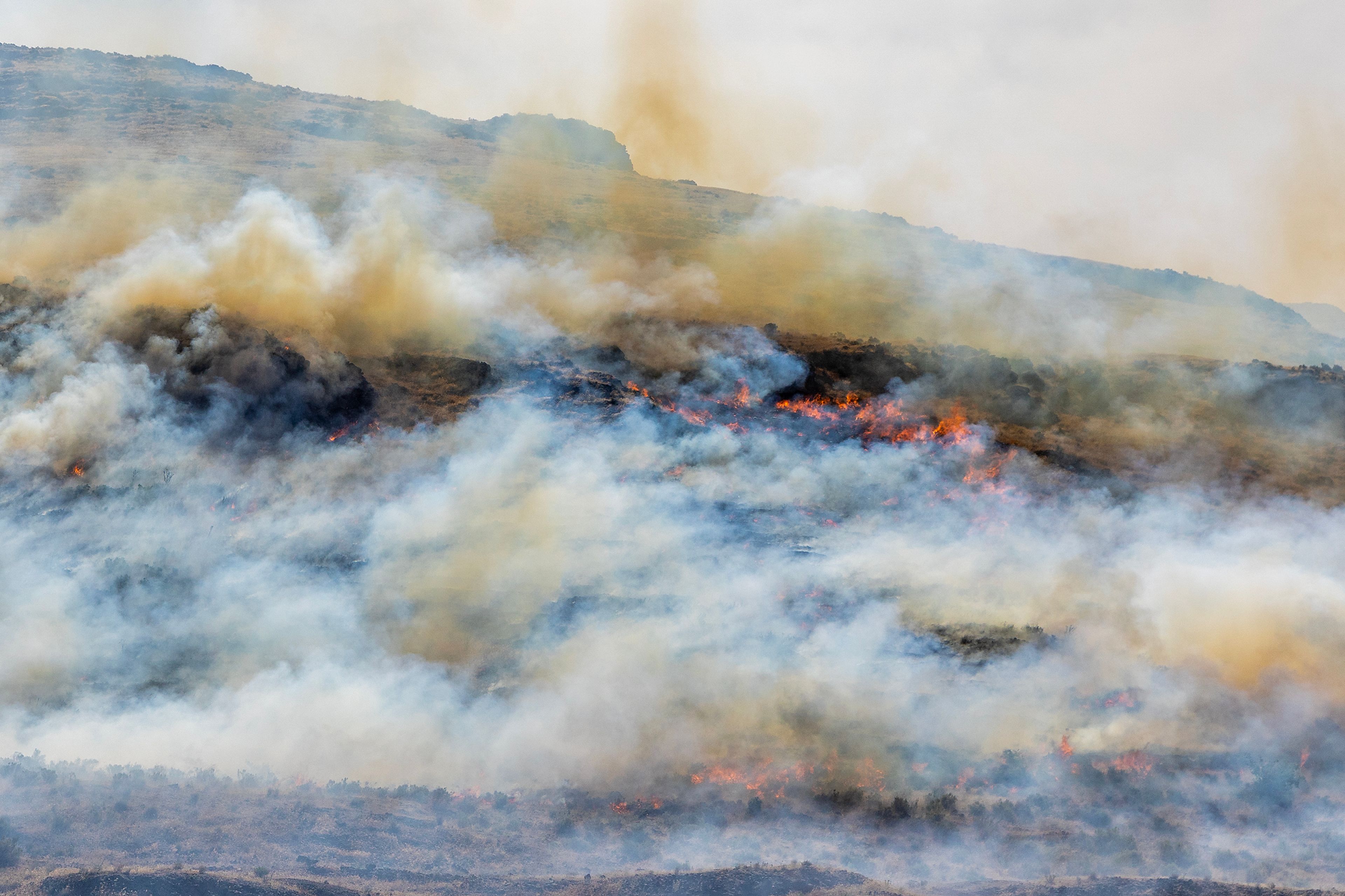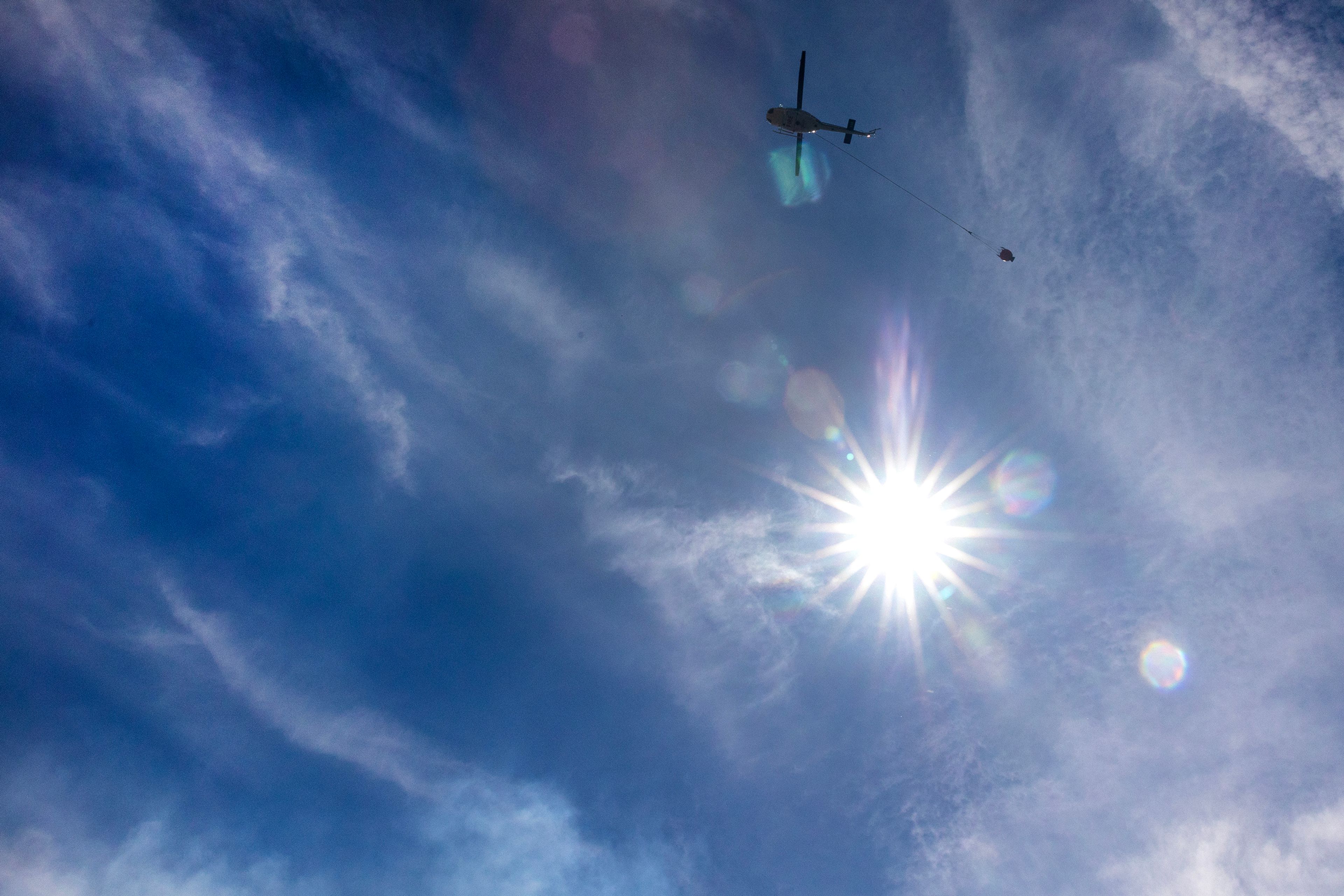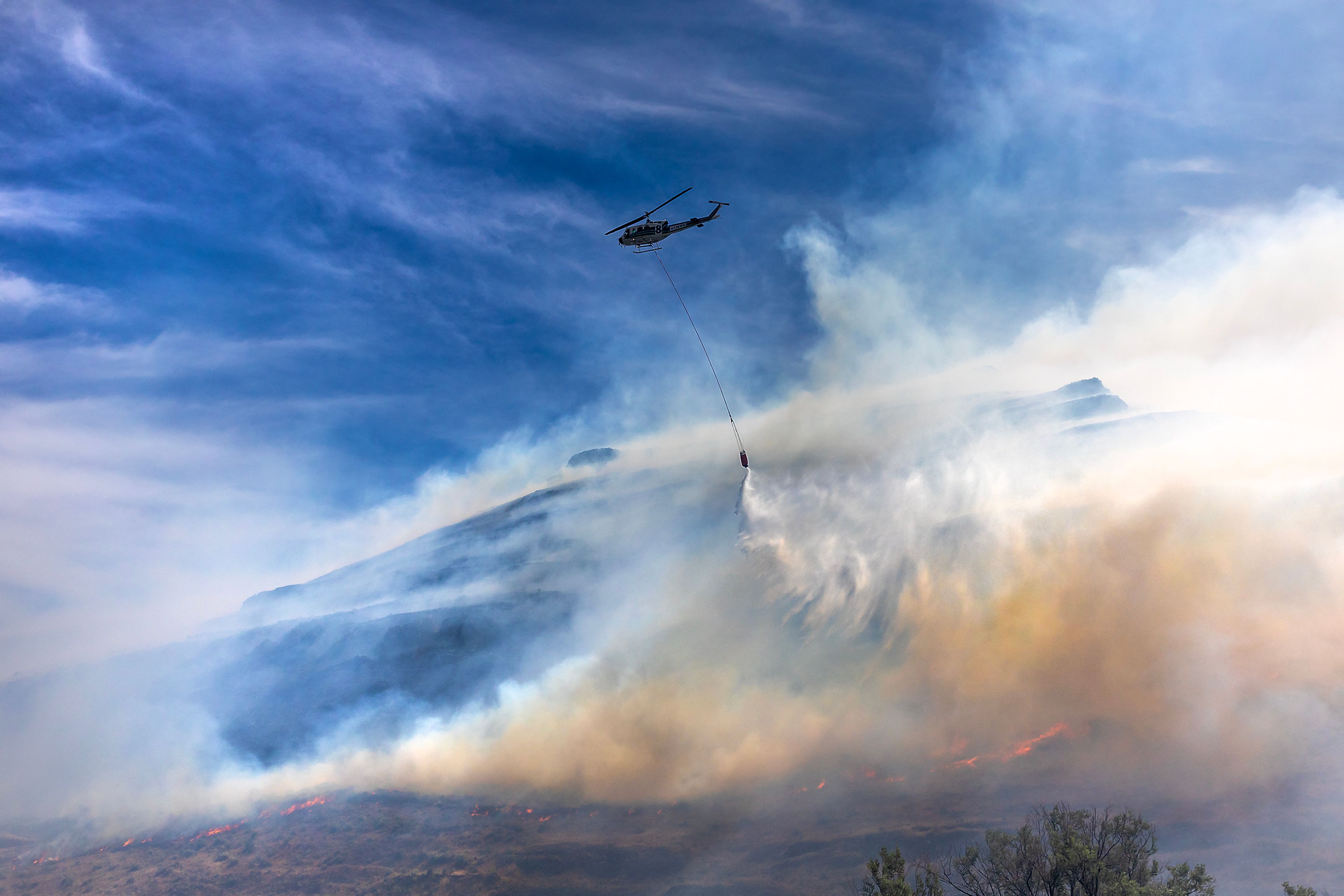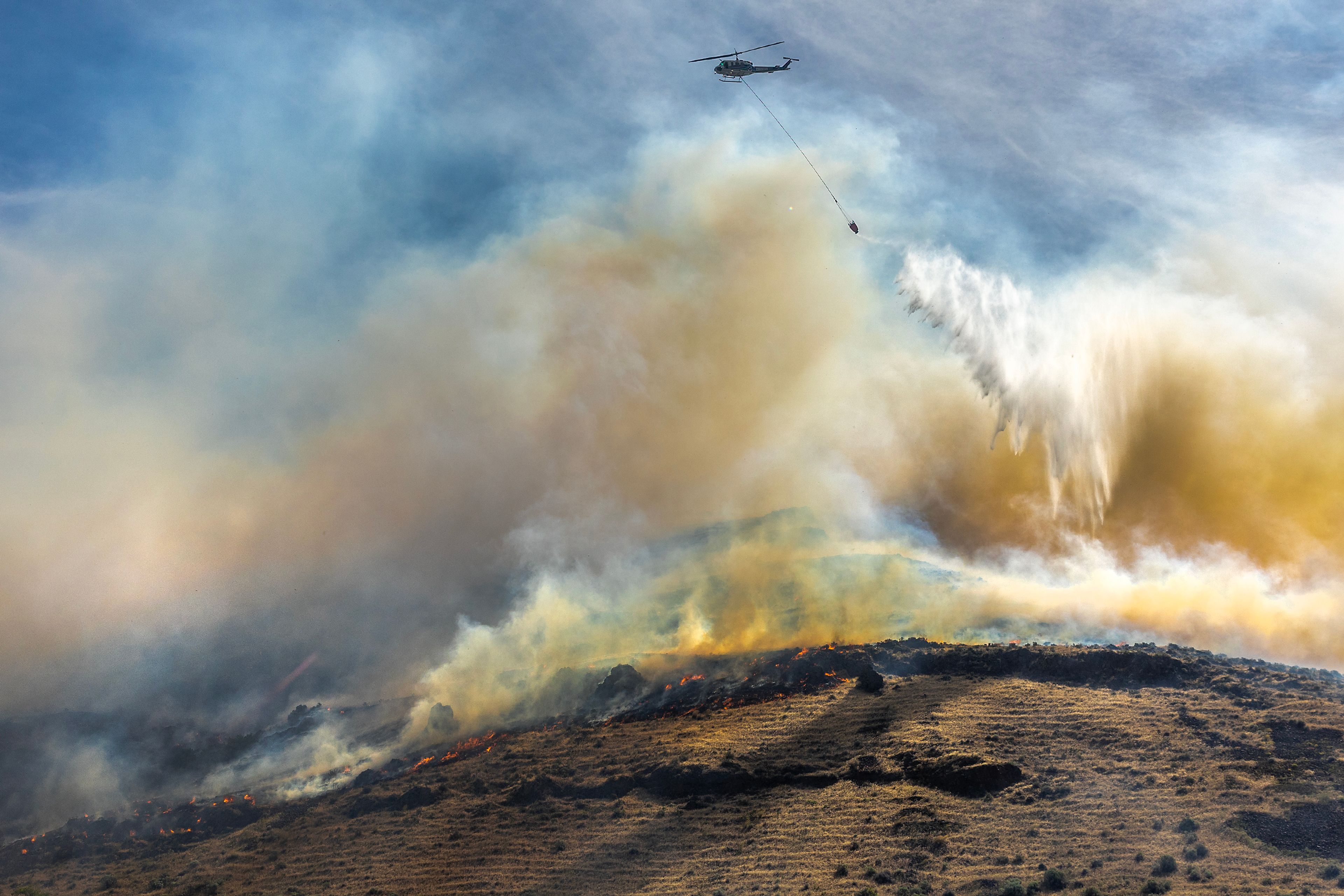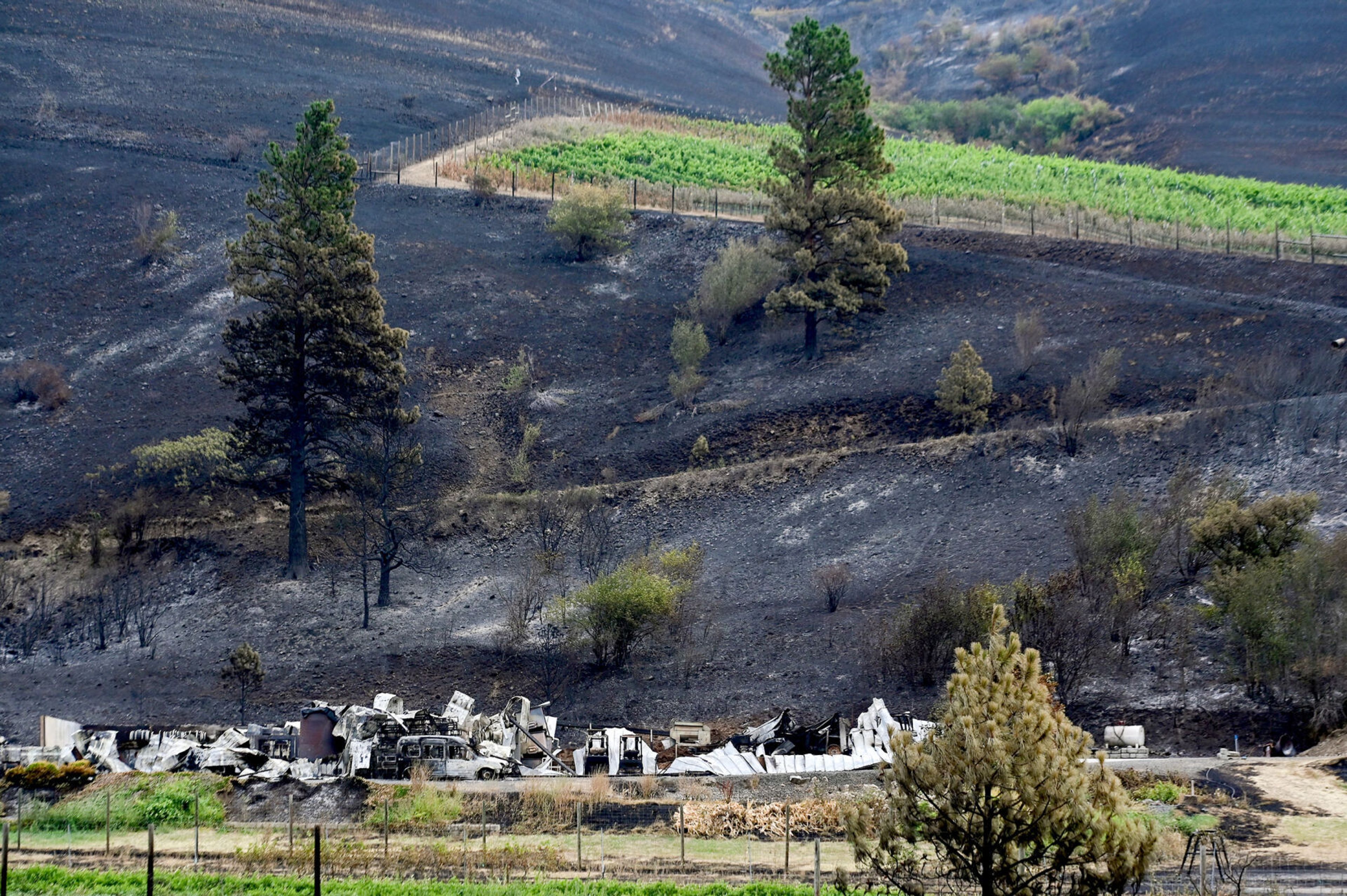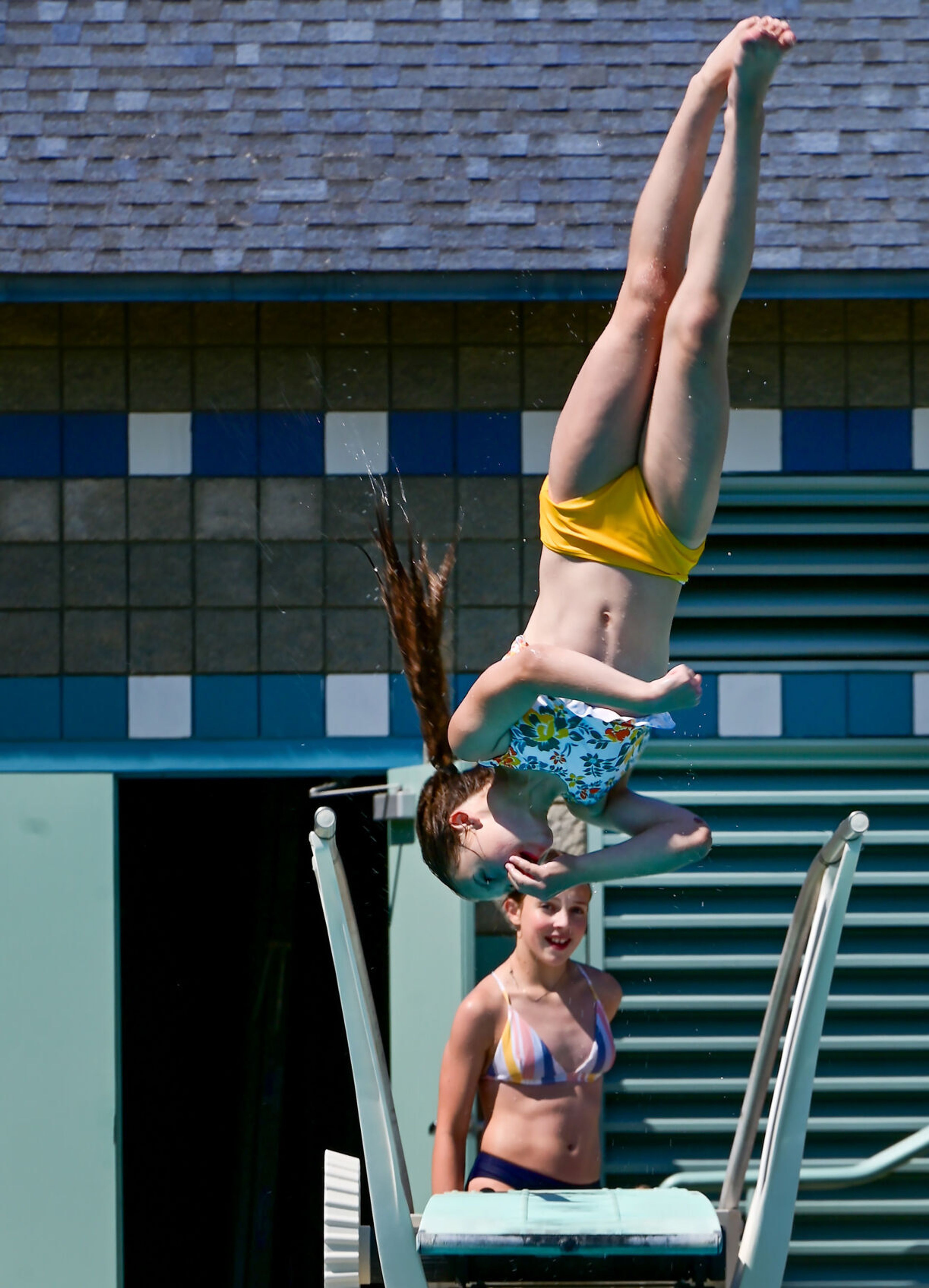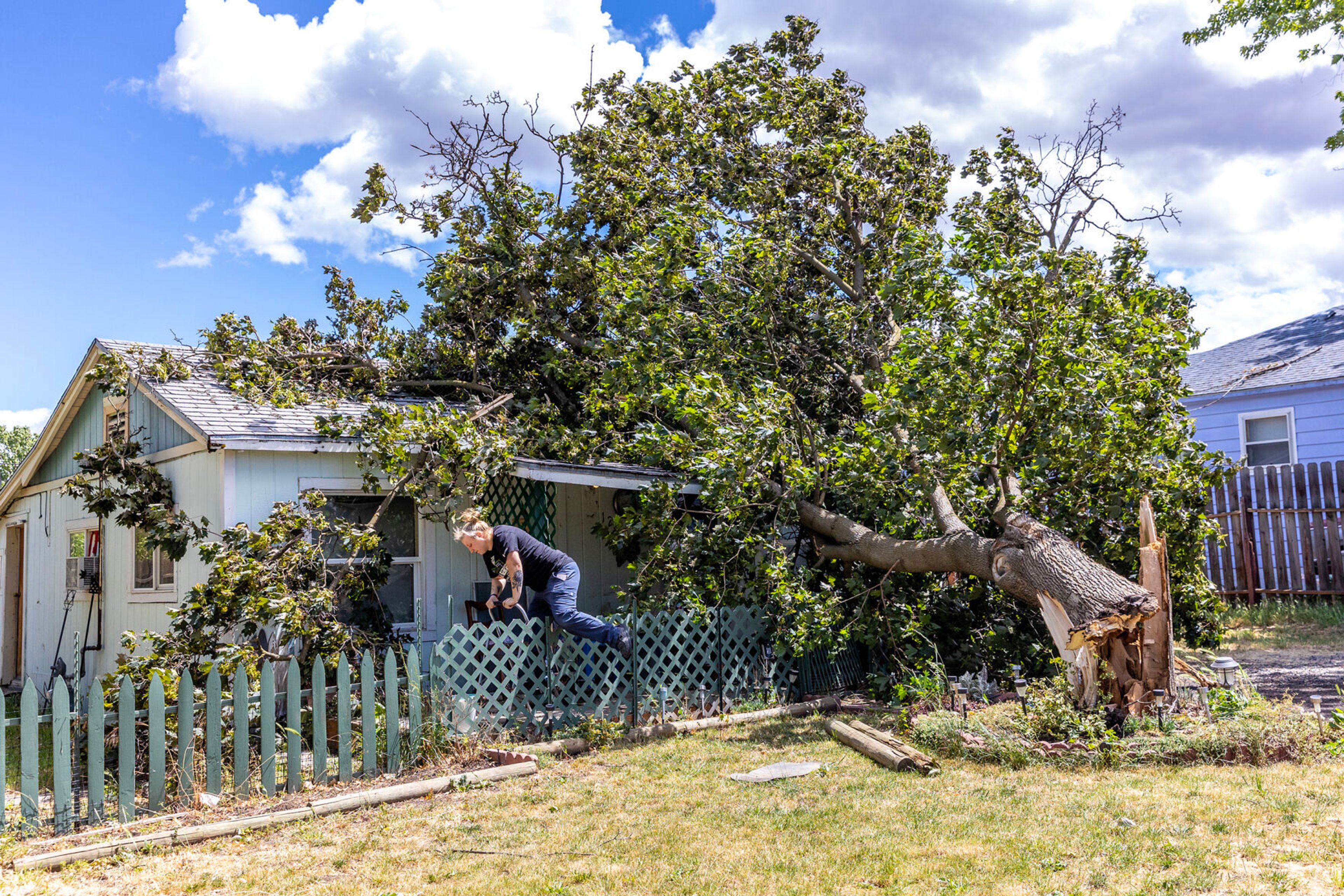Nisqually Fire burns 750 acres Friday (WITH VIDEO)
New law comes in handy in slowing the spread of the wind-driven blaze
Click here for the latest update on the Nisqually John Fire as of Saturday morning.
The wind-driven Nisqually Fire on the breaks of the Snake River northwest of Clarkston burned an estimated 750 acres Friday.
Firefighters empowered by a new law marshaled helicopters and airplanes to attack the blaze.
“The bulk of the active fire was knocked down by the aircraft,” said Nick Bell, deputy fire chief for Whitman County Fire District. “We are doing a little burn out and trying to get some stuff knocked down and tying some lines together. We are still at 0% containment at this time but the spread is close to 0.”
No one was injured and no structures were lost. Level 3 evacuation advisories were issued for some residents in Steptoe Canyon.
The fire started at about 8:30 a.m. near Nisqually John Landing and along State Route 193 that follows the Snake River as it flows west and north. The blaze spread from there and reached into Steptoe Canyon by Friday evening. It was pushed by sustained winds of 15 to 20 miles per hour.
Steven Van Horn of the National Weather Service at Spokane, the closest weather station to the fire, said wind gusts of up to 30 miles per hour were observed at Lewiston on Friday.
Bell reported that seven aircraft including helicopters and water scoopers were deployed on the fire and his district received mutual aid from other fire districts in Whitman County and firefighting teams from Asotin County Fire District, Wheatland Fire District and the cities of Moscow and Clarkston.
Bell credited House Bill 1498, written by Rep. Mary Dye of Pomeroy, with keeping the fire from being much bigger.
The legislation that became law last year creates a pot of money that small rural fire districts that don’t have their own aircraft can tap into to quickly hire expensive aerial fire suppression.
The idea is to deploy aircraft on fast-moving and tough-to-access fires while they are still small.
“It’s bigger than we wanted but not as big as it could have been,” Bell said. “House Bill 1498 allowed us to get the air resources much faster and it was a huge saving grace for us.”
Smoke from the fire drifted into the Lewiston-Clarkston Valley.
A Type 3 team from the Washington Department of Natural Resources that has three hand crews and a strike team of engines and access to air resources is scheduled to take command of firefighting efforts at 6 a.m. today.
Firefighters will face another day of difficult winds but they may also get some rain. Van Horn said gusts out of the west of 25 mph can be expected this morning and sustained winds of 25 to 30 mph with gusts of 35 to 40 mph are possible later in the day. But the stronger gusts would likely be accompanied by thunderstorms, he said.
“The good news is humidities are going to be coming up,” he said.
Friday saw minimum relative humidity levels in the high teens. Today, Van Horn said humidity levels are forecast to be between 25 and 30 percent.
Steptoe Canyon and Wawawai Canyon roads are closed and the Snake River near the fire is closed to boat traffic to allow aircraft to scoop water from the river.
Barker may be contacted at ebarker@lmtribune.com or at (208) 848-2273. Follow him on Twitter @ezebarker.
